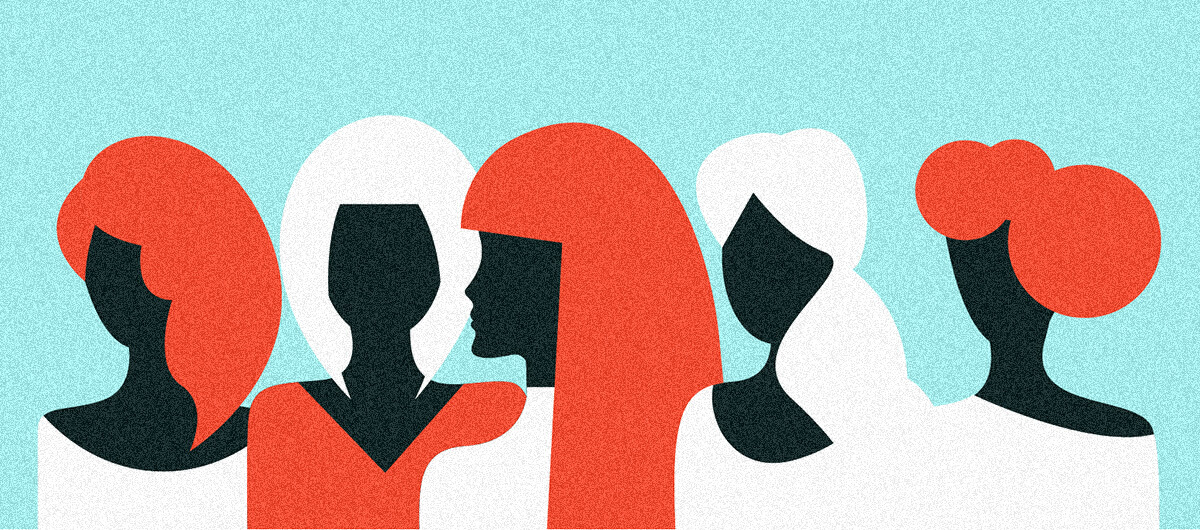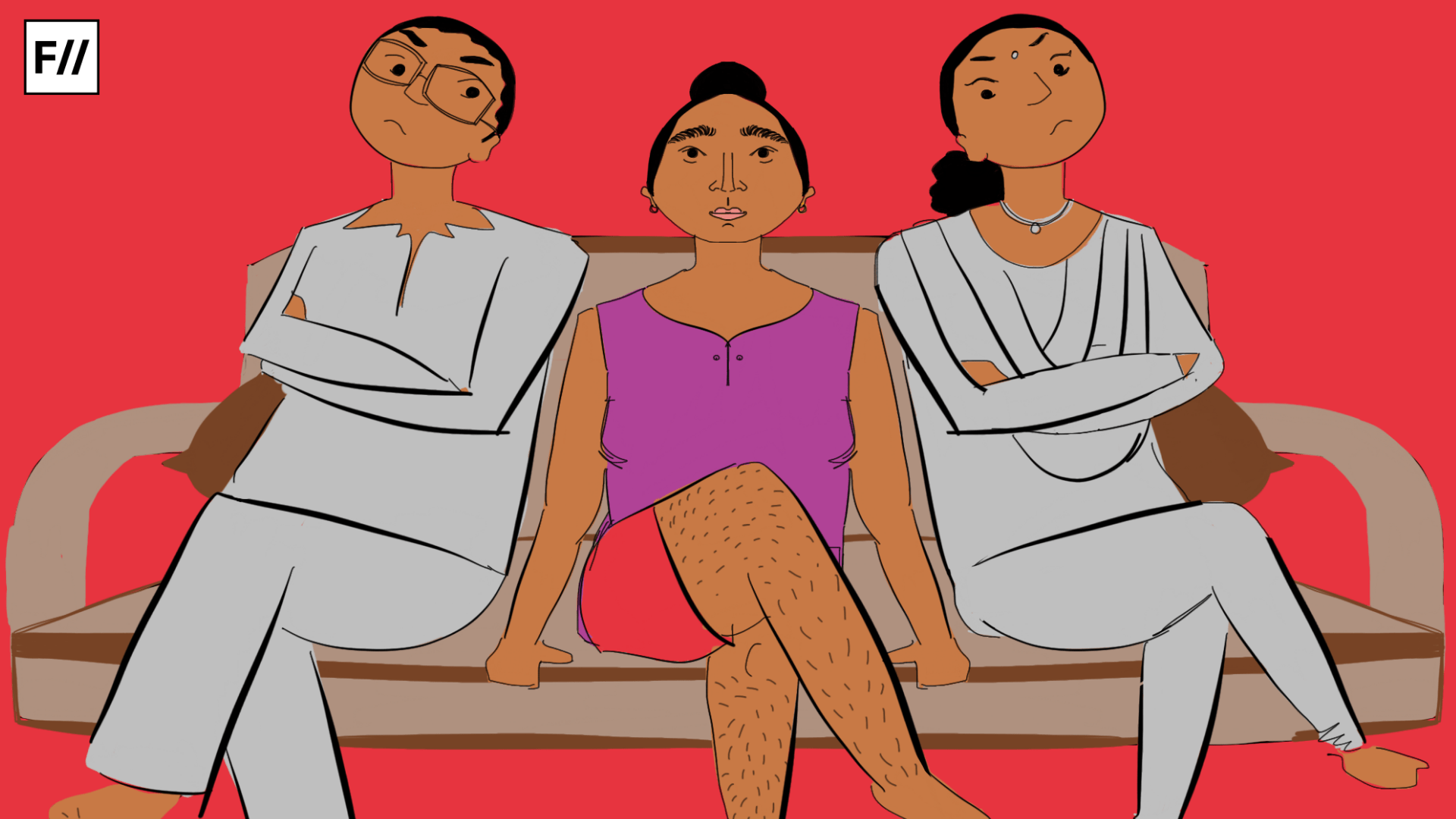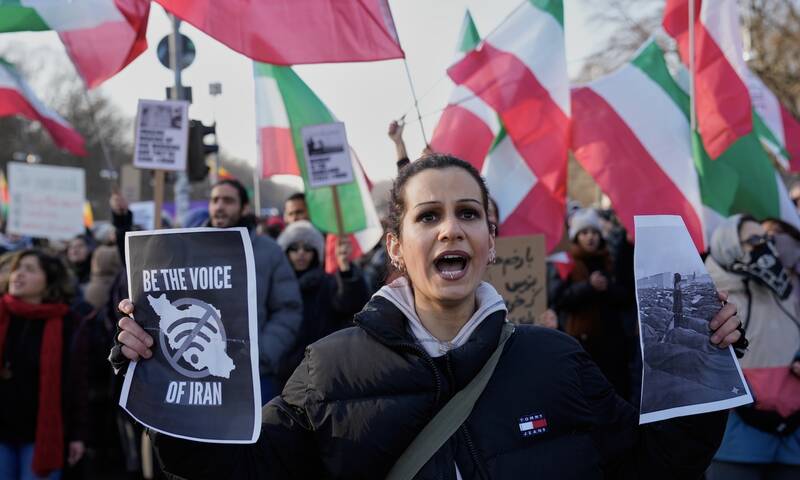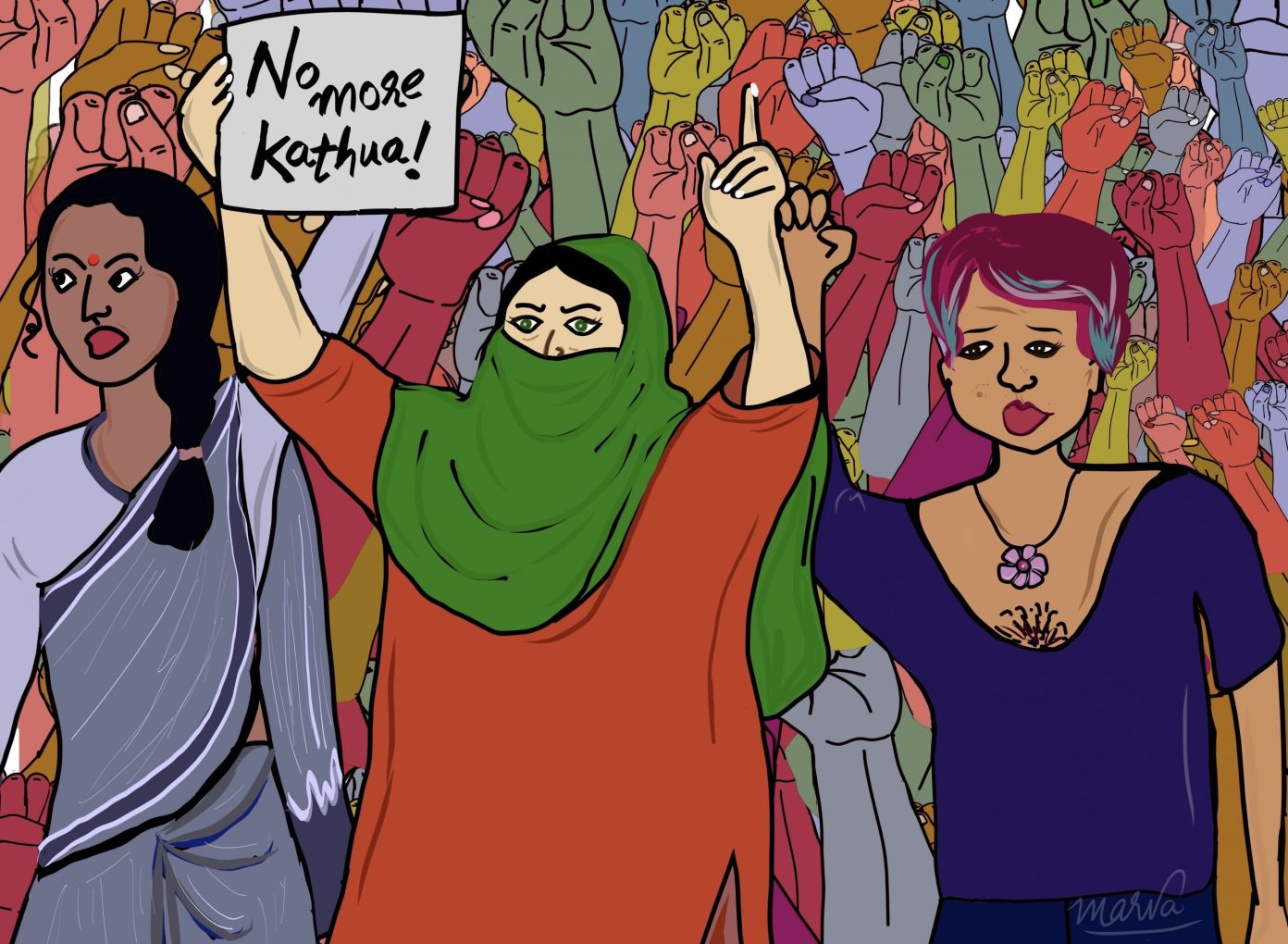From the most routine decisions like choice of clothes or getting a haritcut, to more significant life decisions like career, relationships or finance, both in the public and private spheres, women undergo invetoable censorship and scrutiny. Gender becomes a primary determining factor in taking into account ‘how much freedom can be accorded to a person’, and this ‘decisive authority’, rests with social institutions and individuals who have undertaken the responsibility of ‘distributing’ freedom of choice among people, taking into account innumerable factors such as sexuality, gender, religion, caste, class and everything that leads to the formation of an individual’s personal identity.
In a society like ours where individual expression is heavily policed on the basis of gender citing the maintenance of ‘culture‘, any woman who stands up to this structure is labelled with phrases like “haath se nikal gayi hai” (she has slipped out of our hands). When a woman asserts her choices, the blame is instantly put on Western culture, and it is increasingly taxing to bear this onslaught. In this context, it is extremely important to investigate the relevance of drawing boundaries on individual freedom by correlating them with Western values.

Is freedom of choice related to western culture and values?
In a democracy like ours, the constitution guarantees every citizen certain fundamental freedoms and rights. When the law makes no discrimination in confirming such personal freedoms, why is it that we feel entitled as a society to police the choices of women and other marginalised genders?
Indisputably, being able to take one’s own decisions is one of the predominant means of emancipation. A person’s choices and decisions are a reflection of their personal identity. According to conflict scholar John Burton, one among the three basic needs of humans is to be able to freely express their own identity
When women are self aware, and make independent choices for themselves, they are accused of deviating from the age old, traditional patriarchal norms of the society, which we still try to protect under a veil of ‘culture’. In the research paper, Is personal freedom a western value, Thomas M. Franck elaborates on a statement by Professor Yasuaki Onuma thus, “Discourse on human rights is part of the west centric intellectual discourse that dominates the entire world. This . . . is foreign to many developing nations because of their diverse civilizational backgrounds” and engenders “a strong resentment against the political, economic and military hegemony, as well as the imperial and colonial history, of Western powers and Japan.”
He also states that, “Moreover, other voices argue that the contemporary emphasis on individual rights gives short shrift to non individualistic claims, also relevant to identity formation, such as the rights pertaining to membership in groups and those based on gender.”
With the globally accepted euro-centric perspective on human rights, and the resistance by the third world countries or the Global South due to their respective colonial histories and backgrounds, personal freedom and the freedom of choice are often linked with Western values. However, the amount of emphasis on individualism and community or society as a whole varies from state to state. Many countries value individualistic perspective more than societal or community goals.
Also read: How Modern Is Too Modern?: Gender Roles And The Performance Of Modernity

Indisputably, being able to take one’s own decisions is one of the predominant means of emancipation. A person’s choices and decisions are a reflection of their personal identity. According to conflict scholar John Burton, one among the three basic needs of humans is to be able to freely express their own identity.
Vincent Depaigne mentions in his paper, Individualism, human rights and identity that, “The foundation of individualism is the ‘struggle for recognition’ that has led to the renewed assertion of cultures world-wide. As a result, an in-built contradiction lies at the heart of individualism which leads both to the recognition of the individual’s rights and to the rise of local cultural identities.”
When women are forced to act according to what is ‘expected’ of them, or keep forth a social self which emerges in relation with moral mandates and stereotypically assigned gender roles such as unity, affiliation, sacrifice, support or sharing, there is a constant conflict of self. This leads to suppression of personal aspirations, hinders their right to expression, lowers self esteem and leads to a sense of detachment. The espousal of any of these emtions or roles must be organic and driven by the rationale and agency of the woman in question
Essence of personal freedom
In the context of personal freedom, there is always an inherent conflict with morality in most societies. Especially in societies like ours, where patriarchal power structures still dominate gender roles and assertion, women and individuals from marginalised gender and social locations become targets for more restrictions.

When women are forced to act according to what is ‘expected’ of them, or keep forth a social self which emerges in relation with moral mandates and stereotypically assigned gender roles such as unity, affiliation, sacrifice, support or sharing, there is a constant conflict of self. This leads to suppression of personal aspirations, hinders their right to expression, lowers self esteem and leads to a sense of detachment. The espousal of any of these emtions or roles must be organic and driven by the rationale and agency of the woman in question.
Being able to practice freedom of choice is an essential requirement for development of individual identity and to be accountable for one’s actions and decisions. Socially imposed gendered barriers to freedom of expression are detrimental and discriminatory, and we must as a society try to truly embrace the equality and social justice we advocate on paper.
Also read: Critiquing Sexist Practices In The Family: Keeping Quiet To Avoid ‘Conflict’ At Home
Featured Image Source: Ritika Banerjee for Feminism In India
About the author(s)
Ishita is a student of Political Science (Honors) at Kamla Nehru college, Delhi University. In the world of patriarchy, she is not someone who is afraid to voice out her beliefs and speak up for them. Though mostly cheerful and friendly she is very particular about her deadlines and perfection in her chores





